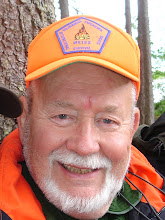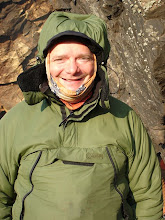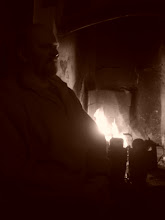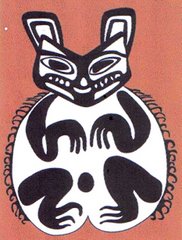Or I'm going on the bearclaw Tenderfoot course HELP!
In Military survival for example the ideal is that you learn to survive and avoid capture with the minimum of kit - the survival tin and all the Rambo type gear of recent years are just gimmicks to catch the stupid out as most soldiers know that unless you escape within the first 24 hours or less of capture you will be processed and in being processed not only can you expect to be beaten senseless you will also be stripped of everything useful - Geneva convention stated IPK to be left ect but I doubt some of those we fight these days can read or have even heard of the Geneva convention.
But Bushcraft - woodcraft - wildernes sliving is different ................isnt it?
So what are our ideals?
Personally speaking I think of 'the craft' as being something that gives me the ability to go into the wilderness kitted out with a knife, a blanket and cook pot and being able to live comfortably.
Of course I have trained myself to be able to do without each of these items but then I would consider that a survival situation as the priorities are different.
And being able to to live happily with just a knife - blanket - cook pot doesnt mean I want to do it all the time. Although I do like to keep my kit down to a minimum at all times especially as we see so many people burdened with all sorts of unnessacary junk but I digress.
So if the ideal of bushcraft is to be able to go out equipped as above (forget the moden trend of carrying a axe, saw kitchen sink ect) and live with nature comfortably surely the three key items we carry are important - so lets consider these.
Knife - your knife is your life and in this case never has it been closer to the truth, so whats the best knife? The best knife is the knife you feel confident in using and can use to the best of your ability. But a knife should be able cover a variety of needs (forget the modern bushcraft knife with its 4" blade and spear point tip - much copied and never seen used outside the bushcraft clique circle - unless you have mastered it in all its fine detail ALL native people and those with experience generally go for something a little bigger) and more importantly should enable us to make a tool to meet our needs if we done carry it.
For example a knife at a minimum should be good for,
- Chopping - wood for shelter - fire - bone
- Carving - we need to fashion tools and trap triggers so fine control is important
- Splitting - either with a baton or more axe like
- Butchering game
- Food prep
- Any one of a million other tasks it might be called upon to do
Ideally our knife should do all the above with ease, in a safe manner with the minimum of effort. It should be easily maintainable in the field and strong.
EQUALLY - the sheath its carried in most be just as good - for a knife is only as good as its sheath!
Blanket - a blankets a blanket isnt it? Well no, not for our purposes. Here we need to consider warmth to weight ratios - fire safety and durablility.
The old Whitby blankets or hudsons bay point blankets were favourites among the Indians and trappers of the 1800's as they had all the above characteristics - but they are bulky and quite heavy!
A US army poncho liner is light, not as warm maybe but not effected by the damp and quick drying - its down side is care must be taken near the fire.
Fleece blankets - again are similar to the Poncho Liner.
A wool polymide blanket would be lighter but more fire friendly.
Also size matter - a single blanket is ok as a top cover or ground sheet in the right conditions but a double blanket would be bulkier but more versatile.
Lastly a space blanket will reflect back body heat - it can be incorperated into the back of the shelter as a fire reflector - but it isnt in itself warm.
Cook ware - of all the modern items the native americans covetted the most the metal cook pot was top on their list - imagine how hard life was without one!
So what should we look for in a pot -
- Size - the bigger the better as we can cook a small meal in a big pot but if we have to purify all our water a small pot isnt fuel and effort effecient.
- Bail arm - if we can hang it over a fire it means we can slow cook foods like stews without the risk of burning the food.
- Wide base - the wider the bottom the better heat is distributed and the quicker it cooks again minimising the risk of burning
- Materials - ali or steel - your choice on what ect
- Thickness - some pots (the stainless mess kit for example) have bombproof thickness - and while it could be argued once hot that stay hot longer - it could also be argued they are heavy and require more calories to carry and more fuel to heat.
- Other bits - is the lid a fry pan, a plate? Does it double as a cup?
- Plastic bits - does it have plastic handles or rim which could melt in the fire?
A pot isnt just a pot we need to think carefully about it.
So those are our key items - I hope they have been food for thought.
And as anyone who has done our Tenderfoot course will tell they maybe be simply items but with these alone the trained person can live like a king!!
























No comments:
Post a Comment